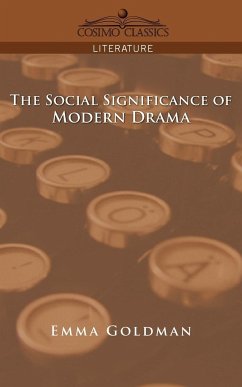"…This dramatist's implicit thesis is that if you listen closely enough, there's significant artistry in insignificant talk. As in her earlier plays, VISION DISTURBANCE and ADULT, Ms Masciotti mines the banalaties of everyday chatter for heroic poetry. Set largely in working-class Pennsylvania, in towns forgotten by time, her uneventful dramas seem to be composed of what might be called `found conversation', of words taken directly from life, with only minor cosmetic alteration. This may sound like your idea of hell. But there's a determined empathy in Ms Masciotti's work that enlivens the senses, making you realize that nothing and no one is boring-once you're forced to pay close attention. …SOCIAL SECURITY is both more conventional and experimental than Ms Masciotti's previous work. Its plot-and it has more of one than this writer usually provides-vaguely recalls a multitude of stories in which a vulnerable old woman is fleeced by a younger predator. The wolf, in this case, is June's landlord, Wayne, a disgraced and self-medicating former podiatrist, who makes nice with his tenant while skimming from her Social Security payments. Another neighbor, the kindly Sissy, a Greek-born masseuse, tries to keep a lookout for threats to June's well-being. What suspense the story has comes from their half-formed battle of wills over an old woman's destiny. June doesn't seem to make moral distinctions between them. As far as she's concerned, each is a set of ears of equal value, receptacles for her contentedly oblivious monologues… …I remain absorbed by Ms Masciotti's logorrheic characters, especially June… June is not unlike that eternal chatterbox Winnie, buried up to her neck in sand in Samuel Beckett's HAPPY DAYS, a person for whom there's life as long there's talk. June is, in her less symbolic way, as immobilized as Winnie is. And as her tongue keeps flapping, she, too, becomes an existential heroine of sorts, a life force that persists even as it shrinks into nothingness." Ben Brantley, The New York Times
Hinweis: Dieser Artikel kann nur an eine deutsche Lieferadresse ausgeliefert werden.
Hinweis: Dieser Artikel kann nur an eine deutsche Lieferadresse ausgeliefert werden.








